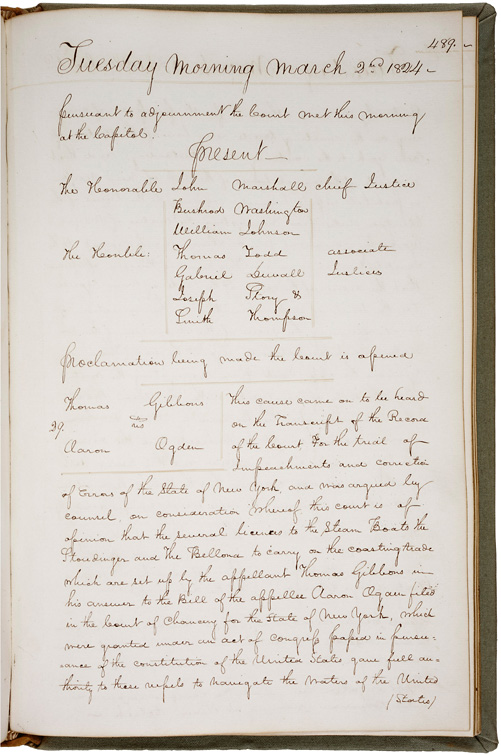Gibbons v. Ogden, an 1824 Supreme Court case, marked the first time the Supreme Court of the United States defined the powers of Congress to regulate interstate commerce (trade between states). The court ruled that federal powers were superior to those of the states in all matters of interstate commerce. The court broadly defined commerce to include the means and routes of transportation. See Interstate commerce (The commerce clause) .

Aaron Ogden had a monopoly, which was granted by New York state, to operate steamboats on the Hudson River between New York and New Jersey. Thomas Gibbons, however, had a federal license to use the same waters. The Supreme Court ruled in favor of Gibbons, declaring the federal license superior to the state grant. This decision led Congress to pass laws promoting free and fair trade between states. It also led Congress to prohibit the states from passing their own laws regarding trade with foreign countries.
